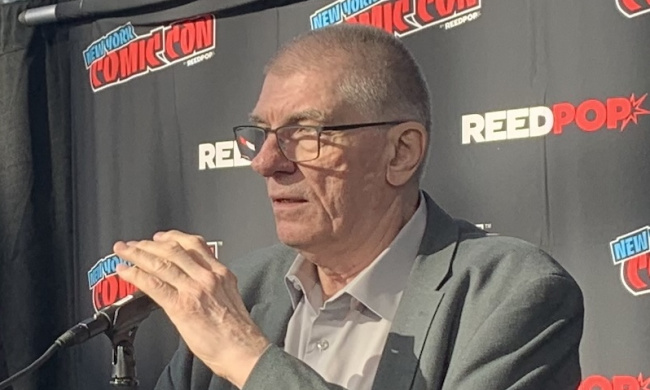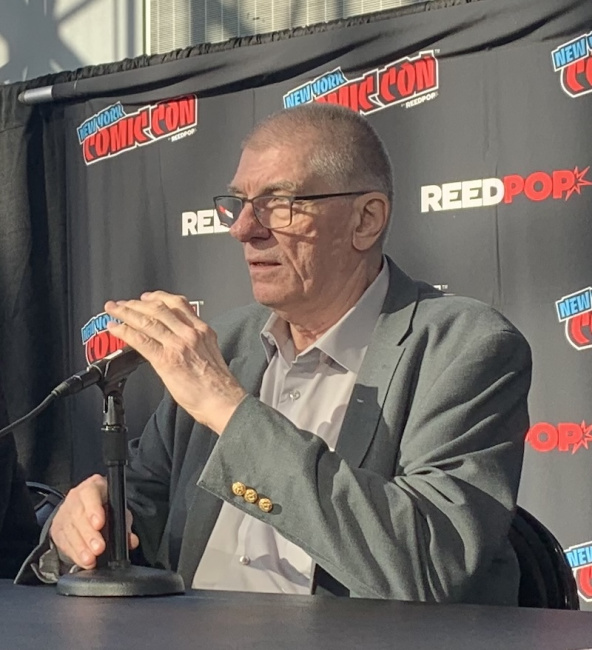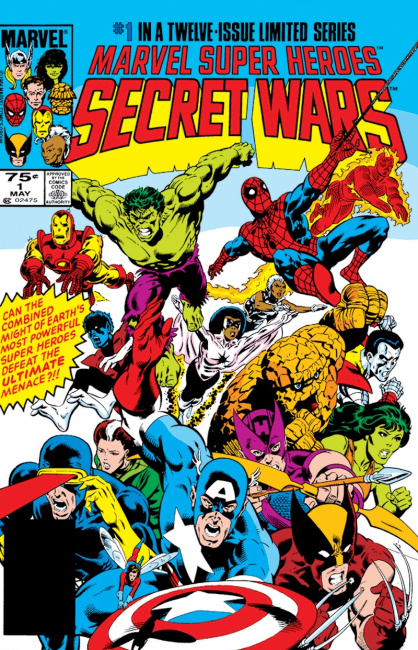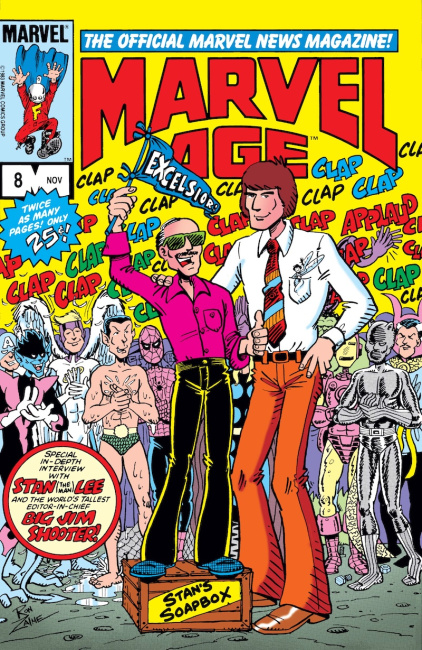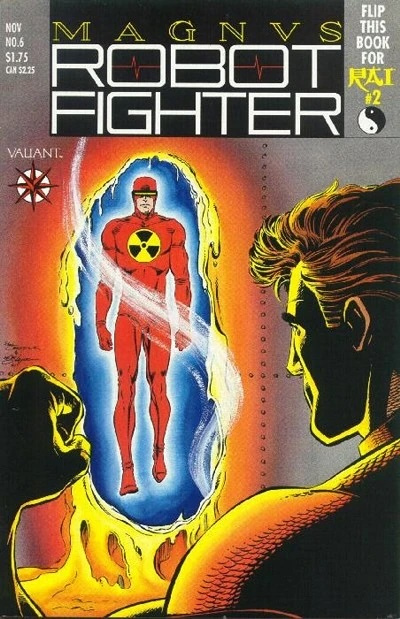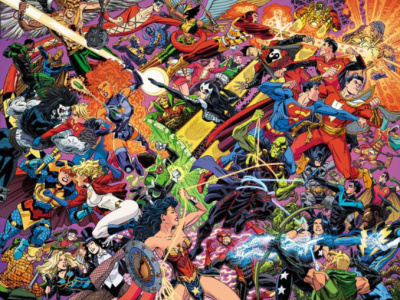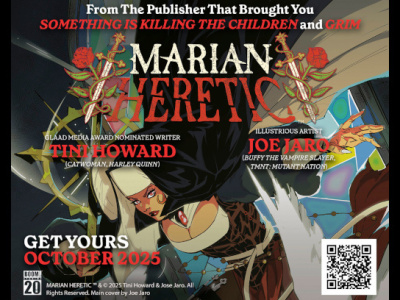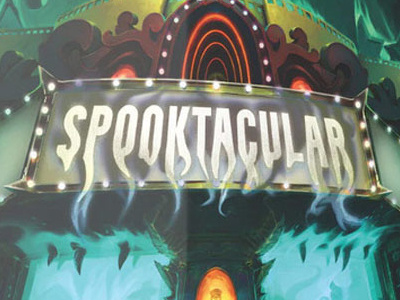Shooter was born in Pittsburgh, PA, in 1951 and, by his own account, decided to try his hand at writing comics at the age of 12, when he was hospitalized for a brief time. “The DC comics were pristine, and the Marvel comics were ratty and dog-eared,” Shooter said in Sean Howe's 2013 history Marvel Comics: The Untold Story. “And so I read a couple DCs and I read a couple of Marvels and I found out why everyone was reading the Marvels: because they were way, way better.”
Figuring he could write better DC Comics stories than the DC folks, and wanting to help his cash-strapped family, Shooter started writing stories about the Legion of Super-Heroes and sent them in to DC. In 1966, when Shooter was 14, DC editor Mort Weisinger bought some of the stories and commissioned him to write more. For the next three years, Shooter wrote stories that tried to bring a Marvel Comics sensibility to DC, creating characters such as the Karate Kid, the Fatal Five and the Superman villain the Parasite.
In 1969, Shooter graduated from high school and got a scholarship to New York University. At the last minute, he got a job with Marvel Comics and dropped both his college plans and his DC Comics gig. However, after a short time on the job he realized he couldn’t survive in New York on Marvel wages and left, returning to Pittsburgh where spent the next few years freelancing and working at different jobs, including managing a KFC.
Then, in 1974, some Legion fans interviewed him for their fanzine and he caught the eye of Marvel assistant Duffy Vohland, who invited him to come to the office and discuss a return to comics. That didn’t pan out, but he returned to writing Legion stories for DC. In December 1975, Marvel editor Marv Wolfman offered him a job. Shooter started in January 1976. At the time, Marvel’s editorial department was in disarray, and Wolfman wanted Shooter to be a “pre-proofreader,” going over stories to catch errors before they went to the artist.
The top echelons at Marvel were a revolving door at the time, and in January 1978, Shooter moved up to Editor-in-Chief. Stan Lee moved to Los Angeles to oversee Marvel’s media projects during Shooters tenure, leaving him with more freedom than his predecessors. Shooter got the comics back on schedule, brought in new creators, and developed new storylines. As Editor-in-Chief he oversaw Chris Claremont and John Byrne’s Uncanny X-Men run, which had begun in 1975, as well as Frank Miller’s Daredevil and Walt Simonson’s Thor, and he ushered in the era of company-wide crossovers such as Secret Wars. He also tightened control over the comics and made changes that did not sit well with the editorial staff.
Shortly after becoming Editor-in-Chief, Shooter noticed a small allotment of comics was going to something called Sea Gate Distribution and asked Ed Shukin, the Director of Circulation, what that was. (At the time, Phil Seuling’s Sea Gate was the only Direct Market distributor.) “Ed got up and closed the door, and he said, ‘Look, we're selling comics to this guy Phil Seuling and he's distributing to comic shops,’” Shooter recalled at the 2023 ICv2 Insider Talks (see “ICv2 Insider Talks: Paul Levitz and Jim Shooter”). “He said, ‘Don’t tell anyone.’” The exclusive deal was illegal, so Marvel broadened it. “We decided to publish trade terms and open up to anyone who could meet the minimums,” Shooter said. “Overnight, we had 18 distributors.” That was a key moment in the development of the Direct Market. Shooter also oversaw the publication of Dazzler #1, the first comic to be sold only in comic shops, which sold 428,000 copies.
Shooter also got royalties for creators for the first time at Marvel. In 1978, changes in copyright law led Marvel’s lawyers to formalize their contracts with freelancers. They ended the previous practice of stamping the contract on the back of paychecks, so the creator would have to sign the contract in order to cash the check, and distributed work-for-hire contracts that gave Marvel all rights to the work in perpetuity. A few years later, though, realizing that Marvel now had to compete for top talent, Shooter decided creators should get royalties. “I had to go to the Board of Directors for that,” he said at the ICv2 talk. “Stan [Lee] came with me. I was pitching, and he was saying ‘He’s right! He’s right!’ But we got it done.” Sales skyrocketed, and creators stayed on board longer, leading to longer runs of successful titles. Under Shooter, Marvel began returning original art to the creators, and in 1982, he started the Epic imprint for creator-owned material.
Although he had brought order to the editorial department and overseen a string of successful series that would become iconic in later years, Shooter also wielded a strong editorial hand, which creators often resented. In April 1987, Marvel fired him.
Shooter then teamed up with lawyer and businessman Steven Massarsky and a group of investors to purchase Marvel. When their bid failed, Shooter and Massarsky founded Voyager Communications and launched Valiant Comics, starting with licensed titles and superheroes based on Gold Key characters, including Magnus, Robot Fighter, and Solar, Man of the Atom. He brought Marvel creators, including Barry Windsor-Smith, to the company, but five years later, in 1992, he was asked to leave. Valiant was purchased by Acclaim Comics in 1994, and Shooter returned in 1999 to write a miniseries during a brief attempt to revive the Valiant name. When Valiant again made a return to the market, in 2008, he wrote a few more stories for them.
After Valiant, Shooter founded two more publishers, Defiant Comics and Broadway Comics, neither of which was successful. He became Creative Director and Editor-in-Chief of the custom comics company Illustrated Media in 2003 and continued to work there in various capacities for 20 years.
In 2007, Shooter returned to Legion of Super-Heroes with issue #37 and wrote 12 issues of the comic, ending his run just before it was canceled. In 2009 he oversaw a new series of the Gold Key superheroes for Dark Horse Comics.
“We are deeply saddened to hear Jim Shooter, former Editor-in-Chief, has passed away,” Marvel Comics said on its official X account. “Jim redefined the comic industry, and we will reflect on his undeniable legacy in the coming days. Our hearts are with his loved ones, and the many creators and fans who were touched by his work.”
“Jim was an excellent super hero writer, a character creator, an editor with an eagle eye, and a man who gave his all to what he did,” Paul Levitz, who was Shooter’s counterpart at DC for much of his career, wrote on Facebook. “From my perspective, he was far weaker as an enterprise leader, and unfortunately that was what he most wanted to be. His sense of history was not, in my view, as good as his sense of fiction. But what he did well, he did gloriously... and my inner child will always be grateful for his inspiration.
“Jim was a big man, not only in stature, but in his impact on comics,” said ICv2 CEO Milton Griepp. “He understood how to create comics for the comic store audience when few in publishing did, and in his role as EIC pushed Marvel to try new things, some successful on a scale that transformed the business. I always felt that he had the best interests of the medium and the audience at heart.”



